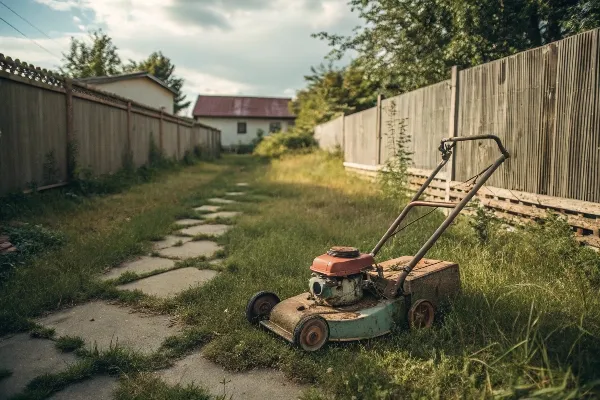Avoid your inquiry is delay response, please enter your WhatsApp/Skype along with the message, so we can contact you at the very first time.
We will reply you within 24 hours. If for urgent case, please add WhatsApp/WeChat: +8613791936882 ,. Or call +86-18678911083 directly.
Tired of dealing with weak, unreliable mowers that slow you down and cost more in the long run?
The best commercial lawn mower combines power, durability, and efficiency—built to handle heavy work without breaking down.

Over the years, I’ve worked with many landscaping pros and garden center managers. Most of them ask the same questions before buying a mower: Which model is best? Which type saves time? Should I go with petrol? In this post, I’ll answer all of those questions and share insights from my factory’s experience building commercial-grade lawn mowers.
Choosing the wrong mower can mean more repairs, slower work, and unhappy clients.
The best lawn mower to buy is a heavy-duty commercial model with a powerful engine, strong frame, and reliable cutting system.
When people ask me for mower recommendations, I always start by asking what they need it for. A home-use mower and a commercial mower are very different. The wrong choice will cost you time and money.
A commercial mower should have at least a 15 to 25 HP engine. This ensures enough torque to handle tough grass, wet ground, and large spaces. Brands like Briggs & Stratton, Honda, or Kawasaki are reliable.
Look for models with wide cutting decks—at least 42 inches—for faster work. The blade system should be made from hardened steel to avoid warping or chipping. Adjustable height is also essential.
A good commercial mower uses a welded steel frame, not a stamped one. This makes it more resistant to impact. Pneumatic or semi-pneumatic wheels are better than plastic for traction and durability.
| Feature | What to Look For |
|---|---|
| Engine | 15–25 HP, commercial-grade |
| Deck Size | 42"+ for faster mowing |
| Frame | Welded steel construction |
| Blades | Hardened steel, adjustable height |
| Transmission | Hydrostatic for smooth control |
I always tell clients: invest once in a quality mower, and it will last for years under hard use. Cheap mowers wear out fast, especially in commercial jobs.
You don’t want to waste hours on mowing jobs that should take half the time.
The best type of lawn mower for commercial use is a zero-turn mower, thanks to its speed, maneuverability, and wide cutting area.

There are several types of mowers on the market. Each has strengths and weaknesses. The key is matching the right mower to your job type and property size.
These are the top choice for most commercial landscapers. They have two handles instead of a steering wheel, which lets you pivot in place. This makes them fast, agile, and great for large, open areas or lawns with obstacles.
These are easier to use for beginners. They have a steering wheel and drive like a car. They’re a good option for medium-sized properties but are slower and less precise than zero-turn mowers.
These are best for small areas or jobs with narrow paths. Not suitable for commercial-scale work due to speed and fatigue.
These offer a mix between push and ride-on types. They’re good for tight spots and allow the operator to jump off quickly. Useful for landscapers who need to mow multiple properties quickly.
| Type | Best For | Pros | Cons |
|---|---|---|---|
| Zero-Turn | Large areas, obstacles | Fast, agile | Takes skill to control |
| Ride-On | Medium lawns | Comfortable, familiar | Slower turning |
| Self-Propelled | Small jobs | Light and easy | Not for large-scale use |
| Stand-On | Quick jobs | Saves time, agile | Less comfort for long hours |
If you’re running a commercial mowing business, a zero-turn mower will save the most time and fuel, especially over big lawns or sports fields.
Battery models are popular now, but are they really better for heavy work?
Yes, petrol lawn mowers1 are worth it for commercial use—they offer more power, longer run time, and better performance on rough or wet grass.
I’ve seen electric mowers improve a lot in the last five years. They’re quieter, cleaner, and lighter. But for real commercial work, petrol mowers still lead in several key areas.
Petrol engines don’t run out of charge. You just refuel and go. That’s key for jobs that take hours or span multiple locations. Most battery mowers can’t handle a full day of cutting without backup batteries.
Petrol mowers are easier to repair. The engines have been around for decades. Spare parts are easy to find, and any mechanic can fix them. Electric mowers often need specific chargers, parts, or software updates.
Electric models may save money on fuel, but batteries are expensive and degrade over time. You may need to replace them every two or three years. Petrol engines last longer when maintained.
| Factor | Petrol Mower | Electric Mower |
|---|---|---|
| Power | High | Moderate |
| Runtime | Unlimited (with fuel) | Limited by battery |
| Repairability | Easy | Often complex |
| Cost | Mid-range | High upfront, battery cost later |
| Noise | Loud | Quiet |
| Emissions | Higher | Low/None |
Some cities and commercial areas are pushing for electric-only landscaping tools. In those cases, it’s smart to keep one battery-powered mower. But for most outdoor jobs, petrol still does the job faster and better.
Choosing the right lawn mower means faster work, fewer breakdowns, and better results. Go with strong engines, smart designs, and materials that last.